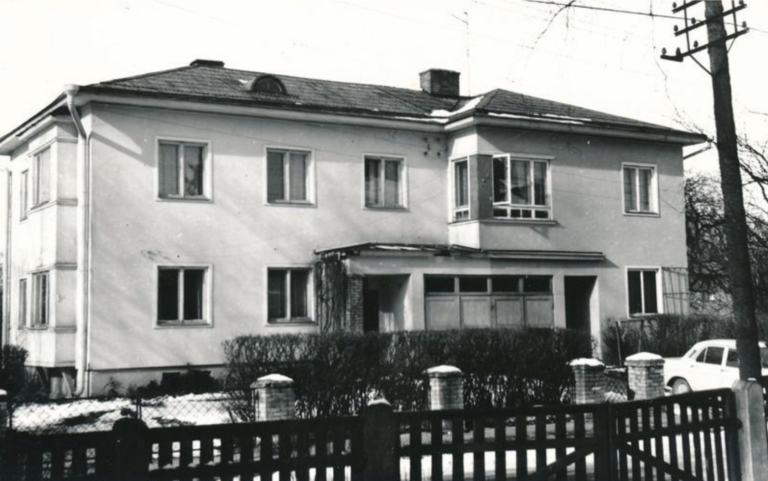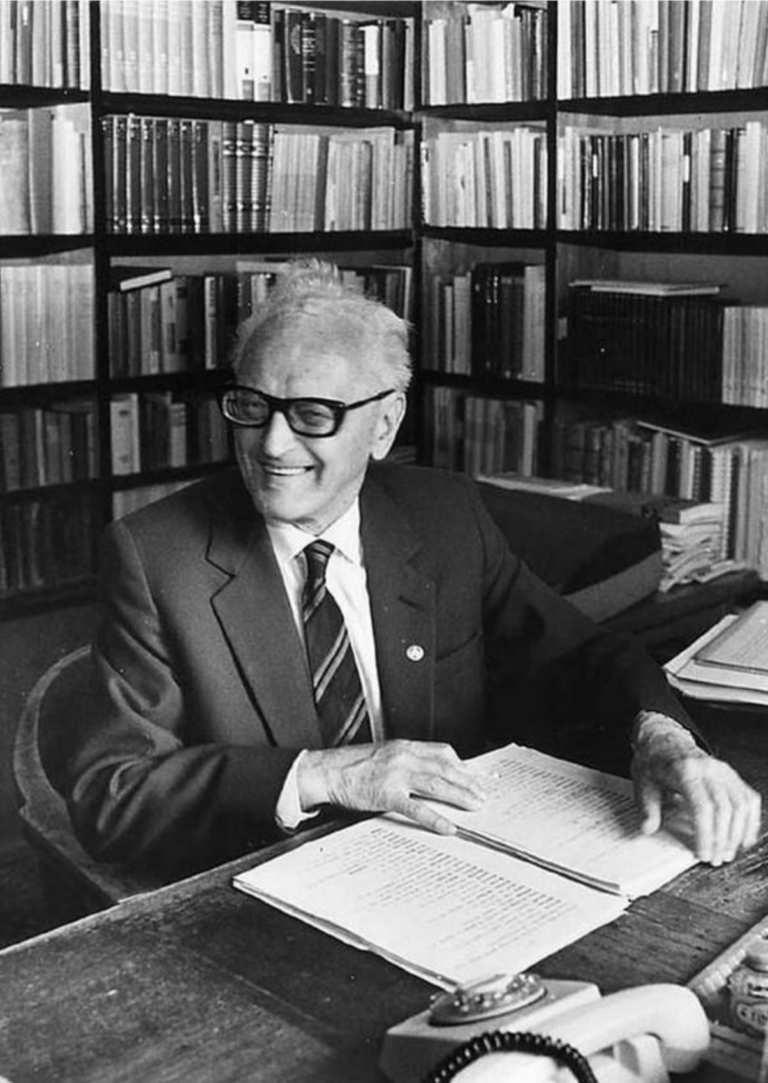
7/7A C R Jakobsoni. (Photo: H Duglas)

Paul Ariste (postimees.ee)
R. Jakobsoni 7
- The residence of the professor Paul Ariste.
7 C R Jakobsoni and Paul Ariste
The house at 7 C R Jakobsoni was the home of one of the best-known people from Tartu, the academician and linguist Paul Ariste (1905‒1990). Ariste was an exceptionally social, charismatic, and talkative person for an academician, and almost all of his contemporaries from Tartu have some stories to tell about him. Ariste had a very close relationship with students and he often spent time with them in the cafés of Tartu, especially at the University café. To this day, Ariste remains an example of an ideal bohemian and social professor for many.
The peculiar nature of Ariste also manifested itself in his relationship with his colleagues. He is claimed to have had a passion for rivalry, which manifested in his wish to publish more articles than anyone else (he wrote more than 1,300, in total), as well as to be the first to receive his monthly wages. Even his University Library reader card bore the sequence number ‘1’.
The home of Ariste in Jakobsoni Street was often visited by students and children he was acquainted with. He is remembered to have organised an exhibition on the themes of the national epic hero Kalevipoeg for children in his home. The focal exhibit was a bottle in the basement which he claimed to have contained ‘the punch of Kalevipoeg’. It was strictly prohibited for the children to open the bottle.
The home of the academician was naturally filled to the brim with books. His library spread over several rooms. According to the literary scholar Peeter Olesk, the books in the home of Ariste were classified as follows: ‘Periodical, such as serial stories and magazines were in the large living room on the upper floor where lady Erna Ariste would later sleep. The books which the professor himself was reading during his breaks or before falling asleep filled a small room on the ground floor. This room was called Papa’s room after the father of Paul Ariste who was from Northern Tartu County and was earning his living as a smith at Rääbise Manor’.
See the episode of the television programme ‘Akadeemikud’ (‘Academicians’) about Paul Ariste and his life in Tartu.